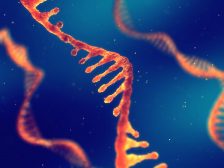Definition
noun, plural: bacteriostats
A biological or chemical agent causing bacteriostasis.
Supplement
Bacteriostatic agents are capable of stopping bacteria from reproducing but not completely destroying them. When the bacteriostat is removed, bacteria can start from growing or reproducing again.
Antibiotics, whose action is only bacteriostatic, hamper the growth of bacteria by interfering with the essential biological activities of bacteria, such as protein production, DNA replication, etc.
However, there is no precise distinction between bacteriostats and bactericides. Some bacteriostats applied in high concentrations can become bactericides whereas bactericides applied in low concentrations are only bacteriostats.
Word origin: G.bakterion, little staff + from G. -statēs, one that causes to stand.
Related forms: bacteriostatic (adjective), bacteriostatically (adverb).
Related phrases: reservoir bacteriostat.
Compare: bactericide.
See also: bacteria, infection.
Dictionary > Bacteriostat
You will also like...

Running Water Freshwater Communities
This tutorial introduces flowing water communities, which bring new and dithering factors into the equation for possible..

Sensory Systems
A sensory system is a part of the nervous system consisting of sensory receptors that receive stimuli from the internal ..

Birth of a Human Baby
Following nine months inside the mother's womb is the birth of the baby. Know the different stages of the birthing proce..

Growth and Plant Hormones
Plants, like animals, produce hormones to regulate plant activities, including growth. They need these hormones to respo..

Origins of Life on Earth
Earth was created around 4.5 billion years ago and life began not long after. Primitive life likely possessed the elemen..

Protein Synthesis
Part of the genetic information is devoted to the synthesis of proteins. mRNA, a type of RNA, is produced as a transcri..

